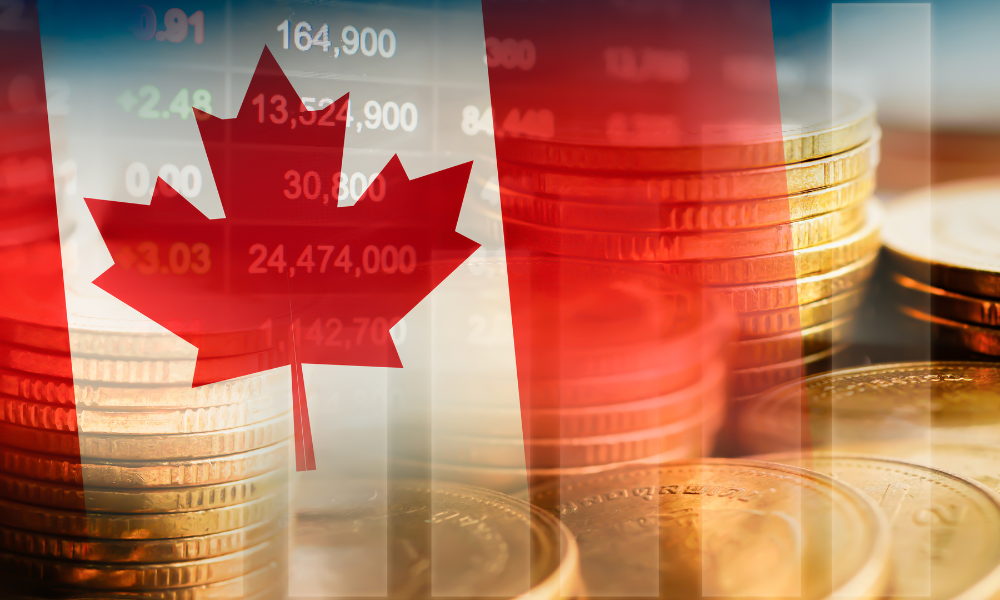Trump delays some tariffs, but industries warn of job losses and rising costs amid ongoing trade tensions

Canada countered US President Donald Trump's tariffs by imposing retaliatory tariffs of 25 percent on $30bn worth of US imports.
The situation continues to evolve, with economic and political ramifications on both sides of the border.
On Thursday, Trump temporarily delayed tariffs on goods covered under the United States-Mexico-Canada Agreement (USMCA), granting a 30-day reprieve.
However, Reuters reported that the suspension is not retroactive, meaning tariffs paid on goods imported between Tuesday and Thursday will not be refunded.
Major industries, including the auto sector, energy, and agriculture, have raised concerns about the new trade measures.
BNN Bloomberg reported that grid operators in the northeastern US are unsure whether Canadian electricity imports will be subject to the new tariffs.
Ontario and Quebec, Canada’s largest electricity exporters, have responded by introducing a 25 percent surcharge on power sent to Minnesota, Michigan, and New York, beginning Monday.
Ontario Premier Doug Ford told CNN, “It really bothers me that we have to do this.”
The US restaurant industry has also expressed alarm. A BNN Bloomberg report noted that McDonald's, Chick-fil-A, and other major restaurant chains warned the White House about the tariffs' potential to increase food costs.
Industry representatives argued that the levies could cost the sector $12bn and further squeeze profit margins.
The agricultural sector is also affected. CTV News reported that the US reduced tariffs on Canadian potash, a key fertilizer ingredient, from 25 percent to 10 percent.
However, experts believe this will still significantly impact US farmers, as Canada supplies more than 80 percent of the potash used on American farms.
Canadian political leaders have been vocal in their criticism of the trade measures.
NDP Leader Jagmeet Singh responded to Trump’s decision to pause tariffs on USMCA-compliant goods by stating, “Standing up to bullies works.”
He further criticized efforts to engage with Trump and Elon Musk, saying, “Only resistance will work.”
Finance Minister Dominic LeBlanc announced that Canada would delay the second wave of retaliatory tariffs until April 2, aligning with the US tariff suspension.
LeBlanc wrote on X, “The United States has agreed to suspend tariffs on CUSMA-compliant exports from Canada until April 2nd.”
The United States has agreed to suspend tariffs on CUSMA-compliant exports from Canada until April 2nd.
— Dominic LeBlanc (@DLeBlancNB) March 6, 2025
As a result, Canada will not proceed with the second wave of tariffs on $125B of U.S. products until April 2nd, while we continue to work for the removal of all tariffs.
“As a result, Canada will not proceed with the second wave of tariffs on $125bn of US products while we continue to work for the removal of all tariffs.”
Despite this temporary relief, Industry Minister François-Philippe Champagne emphasized that Canada’s retaliatory stance remains firm.
Speaking to CTV’s Power Play, he stated, “As long as the threat remains, the pressure stays on.”
Champagne stressed that Canada seeks complete tariff removal rather than temporary suspensions.
The financial markets responded negatively to the trade dispute. BNN Bloomberg reported that Canada’s S&P/TSX Composite Index dropped by 286.78 points, or 1.15 percent, to 24,584.04. US markets also saw broad declines, reflecting investor uncertainty.
Automakers face growing concerns over the trade policies.
Trump told reporters he has no plans to extend the one-month tariff exemption for auto manufacturers. “I don’t want to hear from you after April 2,” he reportedly told industry executives.
The Canadian trucking industry has already begun feeling the effects.
The Canadian Trucking Alliance reported a surge in deliveries ahead of the tariff deadline, followed by an immediate drop in demand.
Many fleets in Ontario have started implementing layoffs, while others consider halting shipments altogether.
Despite Trump’s claims that tariffs will strengthen the US economy, the Associated Press cited economic experts warning of potential inflation and reduced consumer spending.
According to a Yale University Budget Lab study, the new tariffs could increase US inflation by one percent, lower economic growth by half a percent, and cost the average household $1,600 in disposable income.
Trudeau has reiterated Canada’s commitment to removing the tariffs.
During a news conference in Kanata, Ontario, he stated, “We should work together instead,” urging Canadians to support domestic businesses. However, he acknowledged that the trade war could continue “for the foreseeable future.”
The ongoing dispute between Canada and the US underscores the challenges of navigating international trade under shifting policies.
As negotiations continue, both governments face pressure from industries and consumers to find a resolution before economic damage becomes irreversible.



